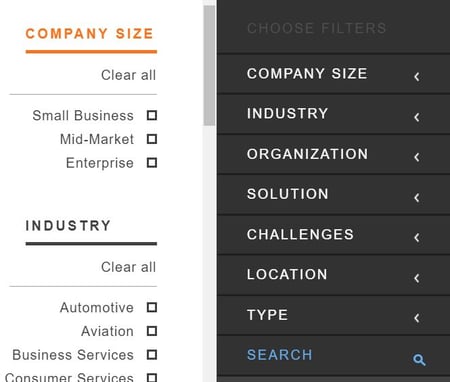Are there problems with HubSpot?
Here's a news flash: there are problems with every tool on the internet. Every tool markets themselves as problem-free, but the truth is, there will be problems. And, HubSpot is no exception to the rule.
Don’t get us wrong. HubSpot is a great tool, and we swear by it. It's the tool that gives us the best chance at digital marketing success.
People who use HubSpot the right way, with solid marketing strategies, do very well. In fact, on average, users that implement HubSpot see a 79% improvement in sales revenue after the first year.
That's huge.
But, what are the potential drawbacks or problems you will face if you buy HubSpot?
Common Problems With HubSpot
When people start using any tool, HubSpot especially, having the wrong expectations can disrupt the entire implementation process. You need to be prepared. Not only does the platform need to weave into your existing day to day operations, but also your strategy and goals need to be supported by the functionality HubSpot offers.
In this article, we're going to explore and explain the issues people face when trying to make HubSpot work.
Problem #1. You think HubSpot will do all the work.
Some marketers jump into HubSpot with the wrong expectations, which can be a problem no engineer can fix.
The beauty of HubSpot is that it supports your goals and marketing initiatives. But it’s not a magic wand. If you’re struggling with executing marketing deliverables, or inconsistent with content creation and social media engagement, HubSpot won’t be the fix all solution. While HubSpot certainly makes these tasks easier, HubSpot success comes down to using the platform to enhance the work that’s already being accomplished by your team.
Focus on identifying the bottlenecks in your organization, as well as the inefficiencies behind why things aren’t getting done. Once you have a smoother, more reliable process in place, revisit working with HubSpot.
Problem #2. You have highly specific needs.
For companies that have very specific automation needs, assess them before investing in a marketing automation platform. While HubSpot is definitely best for most automation and fits what a majority of brands are looking for, it may not be able to support more niche, custom automation needs.
If you have more complex requirements from a platform, the question you should be asking is if you should build or buy custom software. Companies that require custom build solutions typically work with multiple programs are experiencing extremely rapid growth, and have the resources to create software.
These companies also have the budget to allocate towards building these custom solutions. HubSpot is expensive, and even if the high monthly price isn't an issue, that money could go elsewhere. Put it towards constructing a tool that will better suit and grow with your organization.
If you're wondering if HubSpot would be a good fit for your business type, check out their Case Studies which has superb filtering options by size, industry, challenges, and more.

Problem #3. You want to use a single marketing feature.
If you’re planning on using HubSpot for one specific objective, stop. One of the primary benefits of HubSpot is all of your marketing initiatives working in tandem. Without utilizing at least 3-4 features, it's not worth it.
HubSpot has pricing tiers that support smaller companies that are new to inbound marketing with smaller goals. But companies who are just looking for an email marketing or social media platform, should not turn to HubSpot.
Determine what you're expecting from the platform. If you come up with very specific goals related to one digital marketing medium, such as “increase email opens” or “create a monthly email newsletter”, you may be better off investing in more specific tools. Email marketers, for example, get value from a platform such as MailChimp, while social marketers prefer something like HootSuite.
If you fit into that narrative, take a closer look at what your needs actually are. Compare these tools, such as HubSpot vs. Hootsuite until your marketing needs expand.
Problem #4. Analytics limitations
One of the things HubSpot prides itself on is closed-loop analytics. And they should. They are the best in the business at seamlessly and easily tracking contacts through the buyer journey, helping you determine what's working and what's not, and displaying the relevant data in a way that marketers and business owners can grasp.
But there are some rare occasions when you can't get to the level of detail you can with Google Analytics (free). This week, we had to supplement HubSpot analytics with Google Analytics to determine conversion rate by device type on a specific landing page.
Keep in mind, the time you might have to spend supplementing with GA will not come close to the time you save with HubSpot's reporting. HubSpot analytics is still a net gain.
In our opinion, every analytics system has some limitations. So you don't get around this drawback with any other solution.
Problem #5. Content/Data lock-in
HubSpot offers a couple of options on where you put your content. You can keep your site pages and blog in the WordPress CMS and use HubSpot for the forms and marketing automation features. We don't advise this because you miss out on a lot of the valuable features of the HubSpot Content Optimization System (COS) and, as we explain in HubSpot vs. WordPress, you've taken on the time-consuming and often frustrating role of CMS management and hosting.
If you keep your content in WordPress, moving away from HubSpot in the future isn't too bad. If you use the HubSpot COS and end up with hundreds or thousands of pages and posts, moving to another CMS in the future is going to involve either some super-savvy API work or A LOT of copying, pasting, and reformatting.
As we mentioned in #4, one of the most valuable benefits HubSpot offers is the decision-making data you get from their closed-loop analytics. If you decide to move away from HubSpot down the road, that data isn't easily transferable, and you're probably going to lose visibility into a lot of historical numbers. Of course, you can and should run Google Analytics alongside HubSpot, but you probably won't have robust the conversion and customer journey data stored in your GA backup.
Remember, this is only a drawback if you decide to ditch HubSpot at some point in the future. But if you get the right package and use it well, you will not want to leave. That's been the case for us and our clients over the last six years.
The Most Common Problem With HubSpot (And How We Fix It)
The #1 complaint about HubSpot is the price, but most business owners who turn away don't consider the value you get for the price.
Keep in mind; you're getting an all-in-one solution including hosting, security, fantastic support, CRM, and sales functionality, and cutting-edge marketing automation tools.
Is the up-front investment causing you concern? We can save you up to 60%. Follow the steps in our guide to see how you can save during your first year on the platform.





